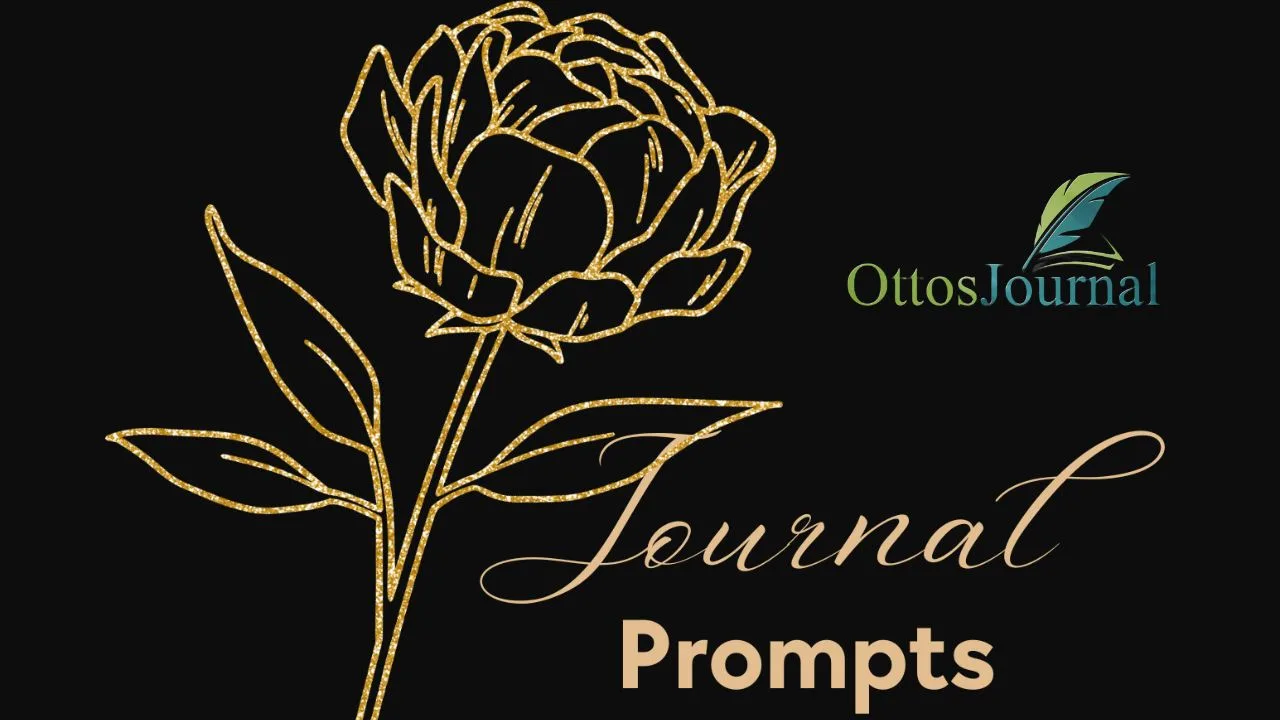Journaling is a powerful tool that can help individuals improve their well-being and mindfulness. The practice of journaling can help people reflect on their day, plan for the future, and focus on the positive aspects of their lives. One popular method of journaling is the five-minute journal, which is a simple guided gratitude journal that can be completed in just a few minutes each day.
The five-minute journal contains five questions that are designed to prime the brain with gratitude, affirmation, and positivity. These questions include prompts such as “What are you grateful for today?” and “What made you happy today?” The questions are simple but effective, and they can help individuals develop a regular journaling practice that can improve their mental health and well-being. By taking just a few minutes each day to reflect on the positive aspects of their lives, individuals can cultivate a greater sense of gratitude and happiness.
The Philosophy of the 5 Minute Journal
The 5 Minute Journal is a simple yet powerful tool that can help individuals cultivate a positive mindset, foster personal growth, and improve their mental health. The journal is based on two key concepts: gratitude and affirmation. By focusing on what they are grateful for and affirming positive beliefs about themselves, individuals can shift their mindset towards a more positive and optimistic outlook on life.
Understanding Gratitude and Affirmation
Gratitude is the practice of acknowledging and appreciating the good things in one’s life. By focusing on what they are grateful for, individuals can cultivate a sense of contentment and satisfaction, even in the face of challenges and difficulties.
The 5 Minute Journal prompts individuals to write down three things they are grateful for each day, helping them to develop a habit of gratitude that can have a profound impact on their mental health and well-being.
Affirmation is the practice of stating positive beliefs about oneself. By affirming positive beliefs, individuals can boost their self-esteem, confidence, and sense of self-worth. The 5 Minute Journal prompts individuals to write down a daily affirmation, helping them to cultivate a positive self-image and develop a more optimistic outlook on life.
The Science of Happiness and Journaling
The 5 Minute Journal is based on the science of happiness and journaling. Research has shown that practicing gratitude and affirmation can have a significant impact on one’s well-being. By focusing on the positive aspects of their lives, individuals can cultivate a sense of happiness and contentment, even in the face of adversity.
Journaling is also a powerful tool for personal growth and self-reflection. By writing down their thoughts and feelings, individuals can gain insight into their emotions, beliefs, and behaviors. The 5 Minute Journal provides a simple yet effective framework for journaling, making it easy for individuals to develop a daily journaling habit that can have a lasting impact on their mental health and well-being.
The 5 Minute Journal is a powerful tool for cultivating a positive mindset, fostering personal growth, and improving mental health. By focusing on gratitude and affirmation, individuals can shift their mindset towards a more positive and optimistic outlook on life. The science of happiness and journaling supports the effectiveness of these practices, making the 5 Minute Journal a valuable tool for anyone looking to improve their well-being and quality of life.
Setting Up Your 5 Minute Journal
Journaling can be an incredibly powerful tool for personal growth and self-reflection. Whether you’re looking to improve your daily routine, develop new habits, or simply gain more insight into your thoughts and emotions, a journal can be an excellent way to do it. In this section, we’ll explore how to set up your journal for success.
Choosing Your Tools and Format
The first step in setting up your journal is to choose your tools and format. Some people prefer to use a physical notebook, while others prefer a digital app. There are many options available, so it’s important to choose one that works for you.
If you prefer a physical notebook, consider investing in a high-quality journal that you enjoy using. Look for one with a durable cover, high-quality paper, and plenty of space for writing. If you prefer a digital app, consider using a five minute journal app that provides daily prompts and reminders.
Structuring Your Daily Entries
Once you’ve chosen your tools and format, it’s time to structure your daily entries. One popular approach is to use five minute journal prompts, which provide a simple framework for daily reflection. These prompts typically include questions like “What are you grateful for today?” and “What would make today great?”
Another approach is to develop your own prompts based on your personal goals and interests. For example, if you’re looking to develop new habits, you might include a prompt like “What habit did you work on today?” or “What habit would you like to develop in the future?”
The key to successful journaling is to find a format that works for you and stick with it. Whether you prefer a physical notebook or a digital app, a structured approach or a more free-form one, the most important thing is to make journaling a regular part of your daily routine.
5 Minute Journal Questions
Below are 30 5-minute journal questions that you can use as prompts for your daily journaling practice.
- What are three things I am grateful for today?
- What would make today great?
- What are my affirmations for the day?
- What are three amazing things that happened today?
- How could I have made today even better?
- Who brought me joy today, and how can I thank them?
- What did I learn about myself today?
- What challenge did I overcome today?
- How did I take a step toward a goal today?
- What made me smile or laugh today?
- Who did I connect with today and how did it enrich my life?
- What act of kindness did I witness or show today?
- How did I take care of my physical health today?
- What progress did I make on a project or task today?
- What am I looking forward to tomorrow?
- What strengths did I utilize today?
- How did I express creativity today?
- What’s a new idea or insight I had today?
- How did I practice self-care or self-love today?
- What is a fear or anxiety I faced today, and how did I handle it?
- What was the most peaceful moment of my day?
- How did nature inspire or comfort me today?
- What is something I did today that was out of my comfort zone?
- What conversation was most meaningful today and why?
- How did I show appreciation for someone today?
- What’s something I’m excited to learn more about?
- How did I contribute to my home or community today?
- What habit am I trying to build, and how did I reinforce it today?
- What’s a compliment I received that made me feel good?
- How did I make time for what truly matters to me today?
These prompts can help you reflect on your day, set goals for the future, and practice gratitude. By incorporating these questions into your daily journaling practice, you can improve your mental health and overall well-being.
Navigating Challenges and Growth
Journaling can be an effective tool for navigating challenges and promoting personal growth. By reflecting on obstacles and setbacks, individuals can gain insights into their own strengths and weaknesses, and develop strategies for overcoming adversity. The following subsections explore how journaling can be used to address stress and overwhelm, and learn from mistakes and failures.
Addressing Stress and Overwhelm
One of the most common challenges that people face is stress and overwhelm. Journaling can be a useful way to address these issues by providing an outlet for emotions and helping individuals to identify and manage sources of stress. Some 5-minute journal prompts that can be helpful in this regard include:
- What is causing me stress right now?
- How can I prioritize my tasks to reduce overwhelm?
- What self-care activities can I do today to manage stress?
Learning from Mistakes and Failures
Another important aspect of personal growth is learning from mistakes and failures. Journaling can be a powerful tool for this purpose, as it allows individuals to reflect on their experiences and identify areas for improvement. Some 5-minute journal prompts that can be helpful in this regard include:
- What did I learn from my recent mistake/failure?
- How can I use this experience to grow and improve?
- What steps can I take to avoid similar mistakes/failures in the future?
Journaling can be a powerful tool for navigating challenges and promoting personal growth. By addressing stress and overwhelm, and learning from mistakes and failures, individuals can gain insights into their own strengths and weaknesses, and develop effective strategies for overcoming adversity.
Enhancing Life Through Journaling
Journaling has been proven to be a powerful tool for enhancing one’s life. It offers a way to reflect on one’s thoughts and feelings, which can lead to greater self-awareness and understanding. It can help individuals foster relationships, boost productivity and creativity, and promote self-care.
Fostering Relationships and Self-Care
Journaling can be a great way to improve one’s relationships with loved ones. By taking the time to reflect on one’s interactions and emotions, individuals can better understand their own needs and communicate them effectively. This can lead to healthier relationships and a greater sense of fulfillment.
Journaling can promote self-care by helping individuals identify their own needs and prioritize them. By reflecting on their thoughts and feelings, individuals can gain insight into what activities and practices bring them joy and energy. This can lead to a more balanced and fulfilling life.
Boosting Productivity and Creativity
Journaling can also be a powerful tool for boosting productivity and creativity. By setting goals and reflecting on progress, individuals can stay motivated and focused on their career path. Journaling can be a great way to generate new ideas and insights, leading to greater creativity and innovation.
To make the most of journaling for productivity and creativity, individuals can use techniques such as bullet journaling or mind mapping. These techniques can help organize thoughts and ideas, making them easier to act on and develop.
Journaling is a powerful tool for enhancing one’s life. By fostering relationships, promoting self-care, and boosting productivity and creativity, it can help individuals achieve their goals and live a more fulfilling life.
Frequently Asked Questions
What are some effective prompts for expressing daily gratitude?
Gratitude prompts are an essential part of the 5-minute journaling practice. Some effective prompts for expressing daily gratitude include:
- What are three things I am grateful for today?
- What made me smile today?
- What are the positive aspects of my life right now?
How can I structure my daily journaling routine for self-reflection?
Structuring your daily journaling routine for self-reflection involves setting aside a specific time and place for journaling. You can also use prompts that encourage self-reflection and introspection, such as:
- What did I learn today?
- What are some things I could have done differently today?
- What are my top priorities for tomorrow?
Which quotes can inspire reflection and personal growth during journaling?
Quotes can be a great source of inspiration and motivation during journaling. Some quotes that can inspire reflection and personal growth include:
- “The only way to do great work is to love what you do.” – Steve Jobs
- “Believe you can and you’re halfway there.” – Theodore Roosevelt
- “Success is not final, failure is not fatal: it is the courage to continue that counts.” – Winston Churchill
How can a 5 minute journaling practice enhance my emotional well-being?
A 5-minute journaling practice can enhance your emotional well-being by helping you focus on the positive aspects of your life. It can also help you identify negative thought patterns and work to change them. Regular journaling can also improve your self-awareness and help you manage stress and anxiety.
What types of questions encourage deeper self-awareness in a short journaling session?
Questions that encourage deeper self-awareness in a short journaling session include:
- What are my core values?
- What are my strengths and weaknesses?
- What are my goals for the future?
Can you suggest daily prompts that facilitate a positive mindset and self-improvement?
Some daily prompts that can facilitate a positive mindset and self-improvement include:
- What are some things I did well today?
- What are some things I am proud of?
- What can I do to improve myself tomorrow?




